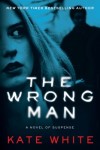

June 22 – 28: “Finding a mentor, what should you look for in one?”
 Behind every great writer is a great mentor. This week ITW Members Kate White, Alex Dolan, Lisa Von Biela, J. T. Ellison and Jean Heller discuss finding a mentor and answer the question: “What should you look for in one?”
Behind every great writer is a great mentor. This week ITW Members Kate White, Alex Dolan, Lisa Von Biela, J. T. Ellison and Jean Heller discuss finding a mentor and answer the question: “What should you look for in one?”
~~~~~
 J.T. Ellison is the New York Times bestselling author of thirteen critically acclaimed novels, including WHAT LIES BEHIND, WHEN SHADOWS FALL and ALL THE PRETTY GIRLS, and is the co-author of the A Brit in the FBI series with #1 New York Times bestselling author Catherine Coulter. Her work has been published in more than twenty countries. Her novel THE COLD ROOM won the ITW Thriller Award for Best Paperback Original and WHERE ALL THE DEAD LIE was a RITA® Nominee for Best Romantic Suspense. She lives in Nashville with her husband and twin kittens, where she enjoys fine wine and good notebooks. Visit JTEllison.com for more insight into her wicked imagination, or follow her on Twitter @Thrillerchick or Facebook.com/JTEllison14.
J.T. Ellison is the New York Times bestselling author of thirteen critically acclaimed novels, including WHAT LIES BEHIND, WHEN SHADOWS FALL and ALL THE PRETTY GIRLS, and is the co-author of the A Brit in the FBI series with #1 New York Times bestselling author Catherine Coulter. Her work has been published in more than twenty countries. Her novel THE COLD ROOM won the ITW Thriller Award for Best Paperback Original and WHERE ALL THE DEAD LIE was a RITA® Nominee for Best Romantic Suspense. She lives in Nashville with her husband and twin kittens, where she enjoys fine wine and good notebooks. Visit JTEllison.com for more insight into her wicked imagination, or follow her on Twitter @Thrillerchick or Facebook.com/JTEllison14.
 Lisa von Biela worked in Information Technology for 25 years, then dropped out to attend the University of Minnesota Law School, graduating magna cum laude in 2009. She now practices law in Seattle, Washington. Lisa began writing short, dark fiction just after the turn of the century. Her first publication appeared in The Edge in 2002. She went on to publish a number of short works in various small press venues, including Gothic.net, Twilight Times, Dark Animus, AfterburnSF, and more. She is the author of the novels THE GENESIS CODE, THE JANUS LEGACY, and BLOCKBUSTER, as well as the novella ASH AND BONE.
Lisa von Biela worked in Information Technology for 25 years, then dropped out to attend the University of Minnesota Law School, graduating magna cum laude in 2009. She now practices law in Seattle, Washington. Lisa began writing short, dark fiction just after the turn of the century. Her first publication appeared in The Edge in 2002. She went on to publish a number of short works in various small press venues, including Gothic.net, Twilight Times, Dark Animus, AfterburnSF, and more. She is the author of the novels THE GENESIS CODE, THE JANUS LEGACY, and BLOCKBUSTER, as well as the novella ASH AND BONE.
 Most of Jean Heller’s career was as an investigative and projects reporter and editor in New York City, Washington, D.C. and St. Petersburg Florida. Her career as a novelist began in the 1990s with the publication of the thrillers, “Maximum Impact” and “Handyman” by St. Martin’s Press. Then life intervened and postponed her new book, “The Someday File,” to publication in late 2014. Jean has won the Worth Bingham Prize, the Polk Award, and is an eight-time Pulitzer Prize nominee.
Most of Jean Heller’s career was as an investigative and projects reporter and editor in New York City, Washington, D.C. and St. Petersburg Florida. Her career as a novelist began in the 1990s with the publication of the thrillers, “Maximum Impact” and “Handyman” by St. Martin’s Press. Then life intervened and postponed her new book, “The Someday File,” to publication in late 2014. Jean has won the Worth Bingham Prize, the Polk Award, and is an eight-time Pulitzer Prize nominee.
 Alex Dolan is a writer and musician based in California. His first book, The Euthanist, is published through Diversion Books and represented by the Sandra Dijkstra Literary Agency. He has recorded four albums: Americana, Move, Owe Me One Cannoli, and Cherub Conga Line (with Crash 22). In addition, he specializes in pro-social communications, using marketing techniques to drive progress on social issues and with mission-driven organizations. He has a master’s degree in strategic communications from Columbia University.
Alex Dolan is a writer and musician based in California. His first book, The Euthanist, is published through Diversion Books and represented by the Sandra Dijkstra Literary Agency. He has recorded four albums: Americana, Move, Owe Me One Cannoli, and Cherub Conga Line (with Crash 22). In addition, he specializes in pro-social communications, using marketing techniques to drive progress on social issues and with mission-driven organizations. He has a master’s degree in strategic communications from Columbia University.
 Kate White, the former editor-in-chief of Cosmopolitan magazine, is the New York Times bestselling author of six Bailey Weggins mysteries and four stand-alone suspense novels, including Eyes on You, and the upcoming The Wrong Man (June 16). She is also the editor of The Mystery Writers of America Cookbook.
Kate White, the former editor-in-chief of Cosmopolitan magazine, is the New York Times bestselling author of six Bailey Weggins mysteries and four stand-alone suspense novels, including Eyes on You, and the upcoming The Wrong Man (June 16). She is also the editor of The Mystery Writers of America Cookbook.
- LAST GIRL MISSING with K.L. Murphy - July 25, 2024
- CHILD OF DUST with Yigal Zur - July 25, 2024
- THE RAVENWOOD CONSPIRACY with Michael Siverling - July 19, 2024
